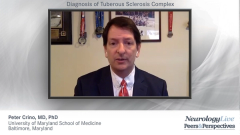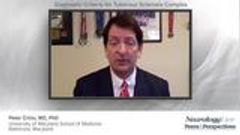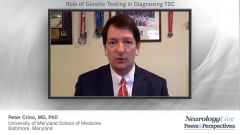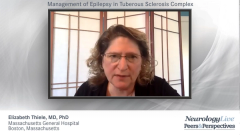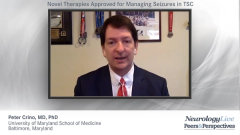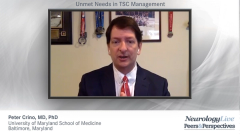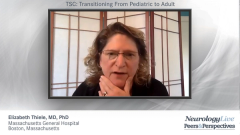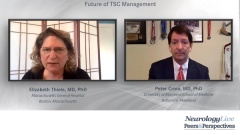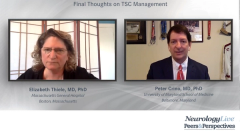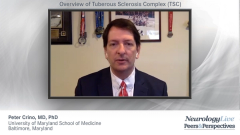
Final Thoughts on TSC Management
Elizabeth Thiele, MD, PhD, and Peter Crino, MD, PhD, provide closing remarks on the future treatment landscape of tuberous sclerosis complex.
Episodes in this series

Elizabeth Thiele, MD, PhD: What else do you think about at night about TSC [tuberous sclerosis complex] before you go to sleep?
Peter Crino, MD, PhD: I spend a lot of time thinking about TS, actually. As I’ve looked back on my career and the challenges, I still think autism remains the unreachable goal in TSC, I really do. It changes the landscape and geography for patient care, for patient quality of life, independence, autonomy, and agency. It changes how we have to do surveillance screening with sedated MRIs versus nonsedated. We need to understand why it is that 40% of individuals with TSC develop autism.
In some ways, we’ve heard the concept of TSC as a linchpin disease, that it is useful to understand many other disorders [such as] diabetes, obesity, cancer, etc. I absolutely feel as though the role of the TSC1 and TSC2 genes in engendering autism is something we need to look at. Quite frankly, I think understanding that will have broad potential echoes in the greater autism community. If I think about what single disease burden over the last 25 years of care doing this has altered quality of life for patients, I have to say, I don’t think it’s epilepsy, I don’t think its kidney disease, and I don’t think it’s lung disease.
I think they’re all very serious, and they all need to be treated. But autism and TAND [TSC-associated neuropsychiatric disorders] completely changed the landscape of what a patient’s life is. I want to go after that in the next 5 to 10 years to understand, why is it that nearly 1 in 2 individuals with TSC will have something on the ASD [autism spectrum disorder] spectrum? There’s got to be something about the mTOR pathway. There’s lots of evidence that there may indeed be something about the mTOR pathway. I feel like that’s the next exciting thing, and we haven’t made major strides in that area. Therapeutics have not done much in that area, and so that to me is something I want to focus on.
Elizabeth Thiele, MD, PhD: I completely agree. I think especially since moving to MGH [Massachusetts General Hospital] and taking care of adults as well as kids with TS, it was profoundly impactful to realize how important and what incredible impact, often very negative and profound, TAND is on people living with TS.
I agree. And the autism, I think you and I have also always suggested that TS be a model for many things. Study autism and TS, and like you said, learn more about autism in the general population. It’s the same for infantile spasms, same for many other aspects of TS. I agree, there is a lot more to do. I agree with you that where we are now with our understanding and ability to care for TS has changed from when you and I started this. It is going to be great fun to see where things continue to go from here.
Peter Crino, MD, PhD: It’s very exciting, it really is.
Elizabeth Thiele: Well, Pete, thank you very much. I always like talking to you about TS any time, so this was a nice opportunity to touch base on many different aspects of it. I’d like to thank the audience for watching this NeurologyLive® webinar. If you enjoyed the content, please subscribe to our news e-newsletters to receive upcoming programs and other great content right in your inbox.
Transcript Edited for Clarity
Newsletter
Keep your finger on the pulse of neurology—subscribe to NeurologyLive for expert interviews, new data, and breakthrough treatment updates.

